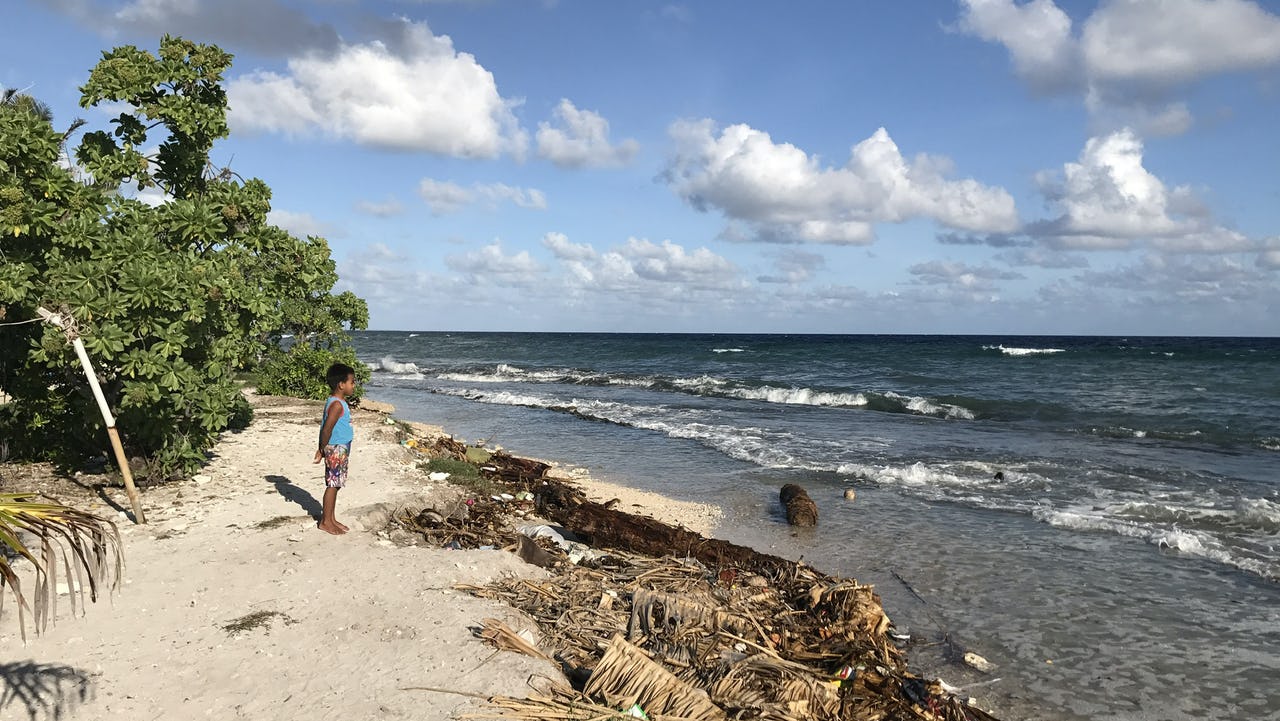Why National Policies are a Key to Climate Action for the Arctic

limate change impacts in the Arctic impact communities across the world, including small island pacific states like Kiribati. Photo: Arorae
When it comes to climate change, policies on both a national and international level are a huge aspect of saving our planet. Those who have the most ability to make an environmental difference are those in power – from business owners to politicians. It should be seen as a global duty to take care of the Arctic, as it affects biodiversity and weather patterns worldwide, which in turn affects the lives of people in disaster-prone areas.
First and foremost, it’s important to understand that the Arctic region is made up of eight countries: Greenland, Iceland, Norway, Sweden, Finland, Russia, Canada and the USA. However, there are countries that aren’t in the Arctic that have shown interest in the region’s policies, such as France, Germany, the United Kingdom, South Korea, and Japan, due to the vast amount of resources such as oil and gas. For example, although the UK is not part of the region, its weather and sea currents are heavily affected by the Arctic.
Why are Policies in the Arctic so important?
Policies that aim to diminish the effects of global warming in the Arctic region are crucial, as they impact such a wide variety of people. Not only are there roughly 4 million people who live there, but there are also over forty different ethnic groups with their own languages, traditions, and values. As well as being environmentally significant, the Arctic is also an essential part of the cultural heritage of countries within the region, as well as our shared world heritage.
In this fight towards a greener planet, cultural and linguistic diversity is often left out of the conversation although it is a crucial aspect of climate change resilience. Just like biodiversity, cultural diversity is important to adapting to climate change and being resilient in disasters. Due to global warming, many communities are being forced to relocate, leaving behind their cultural practises as well as their mother tongue. Although one does not forget their language by relocating, a mixture of globalisation and climate change driven separation of communities, will result in languages being lost.
Parts of Eita, a village in an island republic in the central Pacific, has been severely impacted by flooding, resulting in forced migration.
What is being done?
Numerous articles and scientific papers have been written to governments to urge them to make a needed change. In 2018, for example, the “House of Commons Environmental Audit Committee” wrote a report titled “The Changing Arctic”, that was targeted at the UK’s Government and described in depth the effect the UK was having on the arctic, as well as the impact global warming will have on the UK. As seen on the Arctic Portal website, each Arctic country currently has different approaches to the common goal of climate change mitigation. An example of a country that has pushed environmental policy as a national priority is Finland.
In 2017, Finland published its new set of goals for their involvement in the Arctic. Some goals they mention include enforcing the Paris Agreement, promoting sustainable development, and regional discussion. In it, they also note that, “Arctic policy should be made one of the priorities of the EU’s external relations”, a statement that the Finish prime minister has previously emphasised. Through their strategy, the Finish Government has been able to set specific policies that promote the conservation and immediate action towards the Arctic.
Although there have been more policies put in place, there are few ways in which we can calculate their effectiveness, as most of the environmental issues in the Arctic are due to countries that aren’t in the region. This is why it’s important to be conscious about how our lifestyle can impact the environment, as well as continue to pressure those in power to implement more environmental laws.
What can you do?
Although we’ve discussed how essential it is for governments and people in power to enact policies, it is still possible to make a difference by doing small things. So, a few things you could do is switch to a more meat-free diet, stop using single-use plastic, reduce your carbon emission, educate yourself about the issues the Arctic is currently facing, and share this article for others to read!
Kitty Bertrand is a French and English graduate from LPCUWC ‘2020. She plans on studying anthropology and film production to later work as a photojournalist and filmmaker, as she aspires to encourage intercultural understanding and environmental awareness.